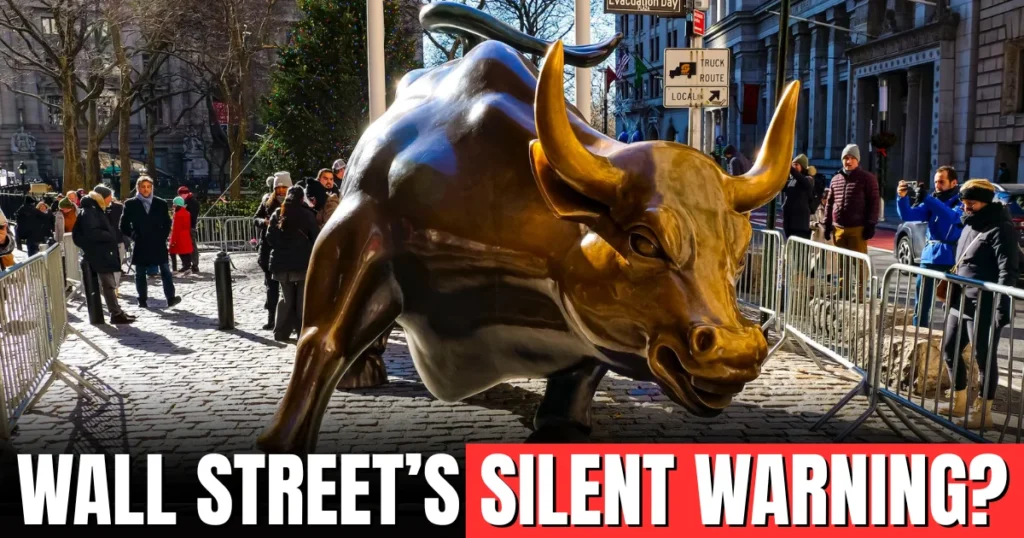Goldman Sachs COO John Waldron sells $13.6M in stock amid China’s $23T market boom. Full analysis on Wall Street moves & investor strategies.
Table of Contents
Goldman Sachs COO Waldron Sells About $13.6 Million in Stock Amid Market Shifts
Introduction
In a significant move that has caught Wall Street’s attention, Goldman Sachs President & COO John Waldron has sold approximately 18,244 shares of company stock, worth an estimated $13.6 million. According to a filing on Friday, the sale was executed based on the stock’s closing price of $745.25 per share.
This comes at a crucial time for Goldman Sachs Group Inc. (GS), as the bank navigates volatile U.S. markets, shifting investor sentiment, and intensifying global competition — particularly from China, where $23 trillion in household savings is beginning to flow into equity markets, fueling a historic stock rally.
In this detailed analysis, we’ll break down:
- Why Waldron sold the shares
- How this impacts Goldman Sachs investors
- Insights into China’s $23 trillion savings-driven stock boom
- Wall Street’s reaction and future projections
Who is John Waldron? The Man Behind the Move

John Waldron has been the President and Chief Operating Officer (COO) of Goldman Sachs since October 2018 and is widely seen as the likely successor to current CEO David Solomon.
Key Facts About John Waldron’s Role:
- Joined Goldman Sachs in 2000
- Became co-head of investment banking in 2014
- Appointed President & COO in October 2018
- Joined Goldman’s Board of Directors in February 2025
- Oversees the bank’s three main divisions — investment banking, asset management, and trading
While Waldron sold a portion of his holdings, he still retains around 300,000 Goldman Sachs shares, according to company filings. This indicates confidence in the company’s long-term growth despite short-term profit-taking.
Why Did Waldron Sell $13.6 Million in Goldman Sachs Stock?
Insiders often sell stocks for many reasons — tax planning, diversification, or portfolio rebalancing. However, when a top executive like Waldron makes such a move, it draws investor attention.
Possible Reasons Behind the Sale:
- Profit Booking: With Goldman Sachs stock trading above $745/share, Waldron may have capitalized on near-record highs.
- Personal Diversification: Executives often rebalance their wealth to reduce dependency on a single company’s performance.
- Strategic Timing: Waldron’s sale comes at a time when Wall Street remains cautious ahead of September’s key economic reports.
Despite the sale, Goldman Sachs’ fundamentals remain strong — the company recently awarded Waldron and Solomon $80 million in share retention bonuses each, reflecting confidence in leadership stability.
Goldman Sachs’ Current Market Position

Goldman Sachs has been actively restructuring its business to stay ahead of market challenges, including:
- Expanding AI-driven trading systems
- Strengthening its wealth management division
- Scaling back on consumer banking experiments
- Investing in China-focused strategies
Its stock has outperformed major U.S. indexes in 2025, largely due to better-than-expected earnings and strategic positioning in global markets.
China’s $23 Trillion Stock Rally: Why It Matters to Goldman Sachs Investors
While Waldron’s stock sale grabbed headlines, the bigger story lies in China, where $23 trillion in household savings is slowly entering the equity market, driving a massive bull rally.
According to Bloomberg, China’s CSI 300 Index has surged 10% in August alone, becoming one of the world’s best-performing indexes.
Key Insights from the Chinese Stock Boom:
- Household deposits fell by 0.7% in July to 160.9 trillion yuan ($23 trillion)
- JPMorgan predicts $350 billion could flow into equities by the end of 2026
- Goldman Sachs upgraded its CSI 300 Index forecast, predicting another 10% upside
Goldman Sachs’ analysts believe China’s liquidity-driven rally could reshape global capital flows, creating new opportunities for U.S. financial giants like GS.
Wall Street’s Reaction to Waldron’s Stock Sale

While some investors see Waldron’s $13.6M stock sale as a red flag, analysts argue it’s not unusual for executives to liquidate small portions of their holdings.
Mark Reilly, a senior strategist at JPMorgan, told Bloomberg:
“This isn’t a signal of weakness. In fact, Waldron remains deeply invested in Goldman Sachs’ future, holding nearly 300,000 shares. Investors shouldn’t overreact to this.”
Following the announcement, Goldman Sachs’ stock dipped slightly by 0.6% in pre-market trading but quickly stabilized due to strong fundamentals.
How This Affects Investors and Traders
For Long-Term Investors
- Goldman remains financially strong with stable leadership
- Retention bonuses and strategic expansion indicate management confidence
- A potential boost from China’s bullish equity flows
For Short-Term Traders
- Expect increased volatility around Goldman Sachs stock
- Watch for September’s U.S. inflation and jobs data
- Keep an eye on China’s liquidity trends impacting global markets
Expert Forecast: What’s Next for Goldman Sachs
With strong earnings, global expansion, and rising exposure to Asian markets, Goldman Sachs’ stock could test new highs in the next 12 months.
Key Targets from Analysts:
- Goldman Sachs (GS) stock price target: $820 → $860
- CSI 300 Index: Additional 10% upside expected
- S&P 500 & Nasdaq outlook: Likely to face short-term corrections but remain in a broader uptrend
FAQs
1. Why did John Waldron sell Goldman Sachs stock?
Waldron sold 18,244 shares worth $13.6 million likely for diversification and profit-taking, not due to any negative outlook.
2. Will this impact Goldman Sachs’ stock price?
The stock saw minor volatility post-announcement, but analysts remain bullish on Goldman Sachs’ long-term growth.
3. How does China’s stock rally affect U.S. investors?
With $23 trillion in Chinese household savings shifting to equities, Wall Street banks like Goldman Sachs expect higher trading activity and global capital flows.
4. Is Goldman Sachs still a good investment in 2025?
Yes — Goldman’s fundamentals, strategic expansion, and global positioning make it an attractive option for long-term investors.

